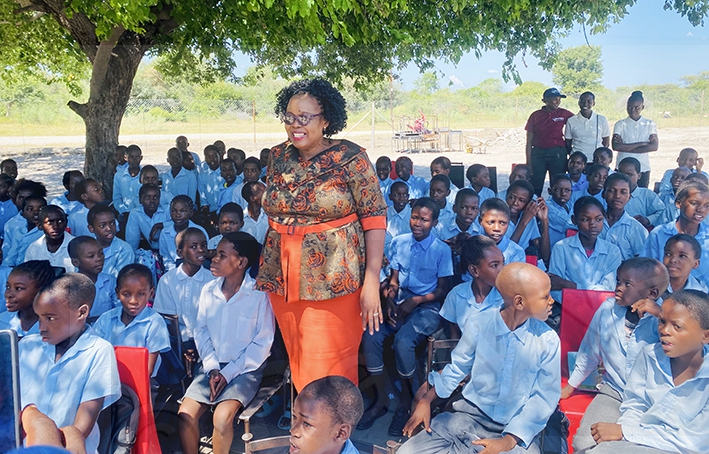Vegetable ban bitter but necessary pill
22 Sep 2024
When restriction on importation of certain horticultural commodities was announced in December 2021, many vegetable sellers were caught off guard and assumed it was a punitive measure.
However, as time passed, its true intention became clearer.
Government imposed a restriction on the importation of such produce as tomatoes, carrots, potatoes, cabbage, lettuce, garlic, onions, ginger, beetroot, butternut, watermelon, fresh herbs, rape, turmeric, chilli peppers, butternuts, sweet peppers, green mealies and choumoellier.
Initially, the ban was supposed to be lifted on December 31, 2023, but government revised and extended it by two years, meaning it will end on December 31, 2025.
Moreover, the scope of the restriction was, effective July 1, 2024, increased to cover products such as; patty pan, pumpkin, sweet potato, green peas, sweet corn, broccoli, calabash, spans peck, eggplant and okra.
The grace period – from January 2024 to July 2024, a press release from the Ministry of Agriculture state, was meant to give farmers sometime to plant so that local produce can be available by the time the restriction commences.
The move did not only shield the country from potential plant infections, but was an opportunity for Batswana to work hard and meet local demand.
Many farmers such as Ms Unami Matlapeng embraced the challenge and invested in a 43-hectare farm in Matshelagabedi, of which she cultivated three hectares of sweet potatoes that yielded a bountiful harvest of P69 000.
Her success is an example of the transformative power of restriction, and she is quick to acknowledge the critical role of the government in catalysing her achievements.
“I have President Dr Mokgweetsi Masisi to thank for this bold decision,” she said and added that it gave her the chance to venture into agriculture and become part of the solution to the country’s food security.
Her produce, she said was so popular that she had to work to keep up with the demand and that challenged her plant more in the next season.
Francistown youth coordinator, Ms Tiny Tamasiga-Gontse said Ms Matlapeng was proof that
represents a new breed of citizens who recognised that government policies and decisions can be the seed of opportunity if one is willing to plant, water and tend to them with diligence.
Tonota Horticultural Farmers Association chairperson, Mr Thusi Kenosi said the ban on vegetable imports surpassed the drawbacks.
He narrated the tale of a struggling farming community, their livelihoods ensnared in the grasp of imported produce flooding local markets.
“The once-vibrant fields of Tonota found themselves overshadowed by foreign goods, leaving local farmers grappling with diminishing sales and eroding profits,” he added.
The village of Tonota has now blossomed into a vibrant hub of self-sufficiency, where the advantages of banning vegetable imports not only revitalised their economy, but also nurtured a profound sense of pride in their land and heritage, Mr Kenosi said and further noted that the development promoted local agriculture produce.
Another advantage he said was food security because relying on imported vegetables could make a country vulnerable to fluctuations in global markets, supply chain disruptions, or trade disputes.
“Banning imports can enhance food security by ensuring a stable and consistent local supply of fresh produce,” Mr Kenosi added.
Mr Kenosi further indicated that the ban was good for the country’s economic growth because supporting local agriculture could stimulate economic growth by creating jobs, increasing agricultural output, and boosting income levels in rural communities.
Local food varieties and culinary traditions that are integral to a country’s cultural heritage can be preserved when this happens, Mr Kenosi said, further explaining that the move encouraged consumption of locally grown vegetables, which could promote healthy eating habits. ENDS
Source : BOPA
Author : Lefika Maruping
Location : FRANCISTOWN
Event : Development news
Date : 22 Sep 2024





